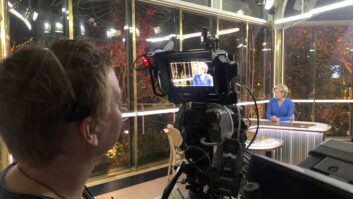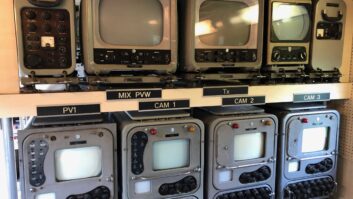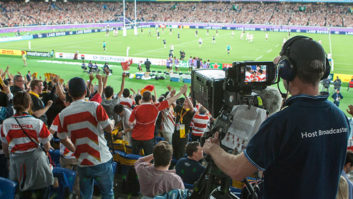A three-year EU-funded project designed to allow viewers to ‘direct’ personalised coverage of large events such as the Olympics has just concluded and some of the technology may yet be used at the London Games, writes Adrian Pennington. My eDirector 2012 backers include the BBC and Atos Origin.
“We are finalising the project and preparing for the final technical audit from the EC. Trials have finished, however we might activate the platform again for demos,” said David Salama, Head Media Lab, Atos Research & Innovation, Atos Origin.
The project’s ultimate target stated on its website is ‘to provide a unique technology showcase for the coming 2012 Olympic Games” in London. Such a showcase would be realized based on those Olympic partners of the consortium, namely Atos Origin (the official IT provider for the 2012 Olympics) and the BBC (Olympic rights holder for the UK).
However the BBC says it hasn’t had a huge involvement in the project, and isn’t planning to directly use any of the results for the 2012 Olympics, although it will take what it has learned from its involvement to inform the development of future services.
My eDirector 2012 was begun in 2008 under the EU’s Framework 7 programme with the last trials ending in March this year. It was devised to let viewers select people or focal points of interest within a live scene and automatically offer them the most appropriate camera view and related statistics. For example, a viewer might be shown an interesting long jump during a long-distance athletics race.
The consortium included the BBC, Athens Information Technology, Atos Origin, the National Technical University of Athens, London’s Queen Mary and Westfield College University and FBK Trento, and is set to meet for a final technical audit, showing demos and presentations of the project results and future plans.
The project built on work conducted since 2004 by the BBC into ‘automated coverage’, a means of automatically capturing content from a scene.
The BBC’s main input has been:
– investigating technology for tracking athletes, specifically doing some tests with a commercially-available RF tagging system to see how it worked in a sports scenario
– providing recordings of various athletics events (recording feeds from lots of cameras) for the project partners to use in tests and trials
– applying camera tracking technology (as used in Piero) to derive camera motion information for some cameras in these recordings (needed by other partners for athlete tracing work)
– helping with the user trials of the interactive player developed by other partners (mainly providing suggestions on user questionnaires and analysing the results)
“We’ll use what we learned from the project when thinking about how services like this might be developed and deployed in the future,” said BBC R&D Principal Project Engineer, Graham Thomas. “We got a lot of experience when seeing how well various technologies worked, and what the user experience of the interactive player was like. We never expected that the results of the project would be directly used for the 2012 Olympics – the timescale was such that the project completed some time after the main technical planning for the Olympics needed to be complete.”
Atos will present My eDirector 2012 results at IBC in September.







